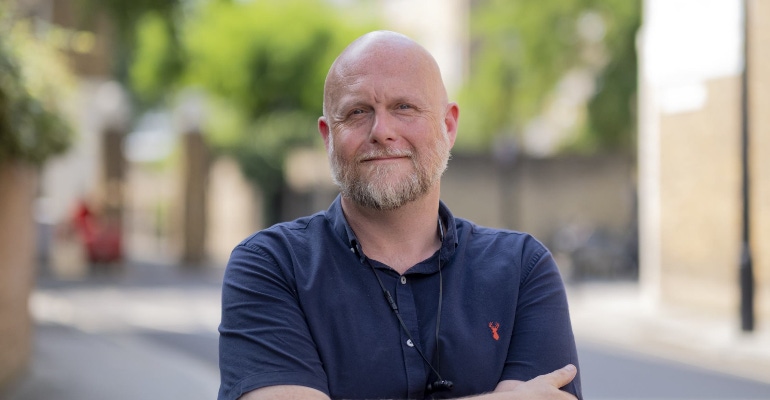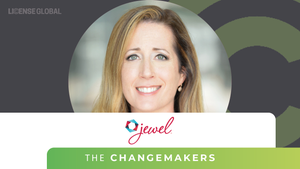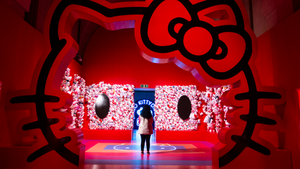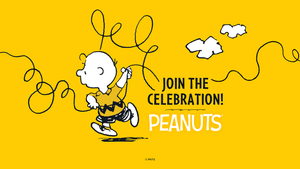LBE: Gary Pope Explores the Experience Economy
License Global speaks exclusively with Gary Pope, co-founder and chief executive officer, Kids Industries, to understand the physical and digital opportunities of today’s location-based experience market.
March 29, 2022

License Global: How is the location-based entertainment market back on the rise across the world?
Gary Pope: The rise really only slowed because of COVID and the pent-up demand for physical experiences is well documented, so I won’t labor that. But there is something else happening that I think is interesting and that’s the value that consumers are placing on experiences over material goods and it’s this demand that is driving the market. Technology has also moved forward so much and so when we think about immersive experiences like Jeff Wayne’s War of The Worlds by Layered Reality, what we get is true immersion with the elegant application of technology. In 1998 Pine and Gilmore wrote the “Experience Economy.” It was seminal, but we didn't know it then. It is only now that brands are actually truly understanding the power of experiential currency and consumers are very happy to invest in it.
LG: How are brands working with the LBE opportunity to bring something different to kids and stand out in the market?
GP: LBE is a bit of a catch-all statement, isn't it? A shop, a cafe, a theme park … anything and everything that is experienced physically seems to be called an LBE. And that’s ok.
The advances we’ve seen in retail in recent years have elevated shopping to incredible new heights – partly to counter the rise of Amazon, but also because in our wonderful world of entertainment they can. Take the Harry Potter shop in NYC for example – it’s just mind blowing – half shop, half theme park on a retail footprint. Children learn by doing and by creating an entertainment experience of any kind that helps the audience deeply and meaningfully emotionally connect with it.
What are some of the best examples of the LBE space you've seen this year?
GP: Well, that’s a loaded question, but The Bluey House stands out for me. They’ve done exactly what a child needs them to do and recreated it faithfully. The love, care and attention that has gone into it is kind of what you’d expect, to be honest. Is this LBE? Well, it’s immersion in Bluey’s world so I guess it must be. You can AirBnB it apparently but ironically, no dogs are allowed. Then at the other end of the spectrum, you’ve got the Rick and Morty Wendy’s experience in Vegas … I’d really, really like to go.
I am an educator first and foremost having taught for several years before opening KI, and what I want to see from an LBE is that it not only entertains children – that's the baseline – but it should empower them to see things in new ways. By its very definition an experience is immersive and that’s how we learn. The bottom line as far as licensing goes, is the deeper the experience the deeper the connection – and that means more propensity to purchase as you exit through the gift shop. But you also have things like the incredible National Geographic Jane Goodall Experience and the forthcoming Curiosity Playground – this is a PBS-led LBE around their core brands and it engages children with the IP through a meaningful and differentiated learning experience and it does so in a progressive way as the children journey deeper into the LBE itself. It’s very, very clever thinking.
LG: Roblox, Fortnite and Minecraft servers are acting as a new kind of location for brands. How is the notion of the 'metaverse' changing how brands engage consumers?
GP: Notion is the right word. The metaverse is just the internet with bells on really, isn’t it? It’s easy to get all excited about this brave new world; take a step back for a moment.
The metaverse – hate that phrase – shouldn’t really change anything about how brands engage their consumers. It’s just a different platform.
It seems as if things are changing dramatically, but I’d wager that’s because to most of us it is the unknown – technology is anything that was invented after you were born, so to children today the metaverse is not technology – it’s just another channel. And that’s the perspective we must keep in mind to fully understand what these new opportunities mean for the consumer.
Falcons Beyond has developed an interesting piece of tech that it’s calling Aeon. It enables guests that are immersed in experiences to carry those experiences into the digital world – properly. It's a real conduit to the metaverse and we’ll be seeing it roll out at their new Kathmandu parks from the end of this year. Brands will really need to work out how to have a foot in IRL and one in the metaverse.
LG: What do brands need to bear in mind when approaching the digital experience market?
GP: First up, brand integrity. Easy to say and very hard to deliver properly. It must be kept front of mind as the new vistas of digital engagement emerge. Brand management is, for me at least, an exercise in relationships – building them, developing them and then maintaining them. If this means going to places that to us seem new and unwieldy, well, it’s up to us to get up to speed and understand these places properly. That’s kind of why we do what we do.
This year’s Licensing Expo in Las Vegas (May 23-25, 2022) brings LBE to life as its core theme. Stay tuned for more exclusive insights from our LBE series online or register to attend Licensing Expo here.
Read more about:
Kids IndustriesAbout the Author(s)
You May Also Like






